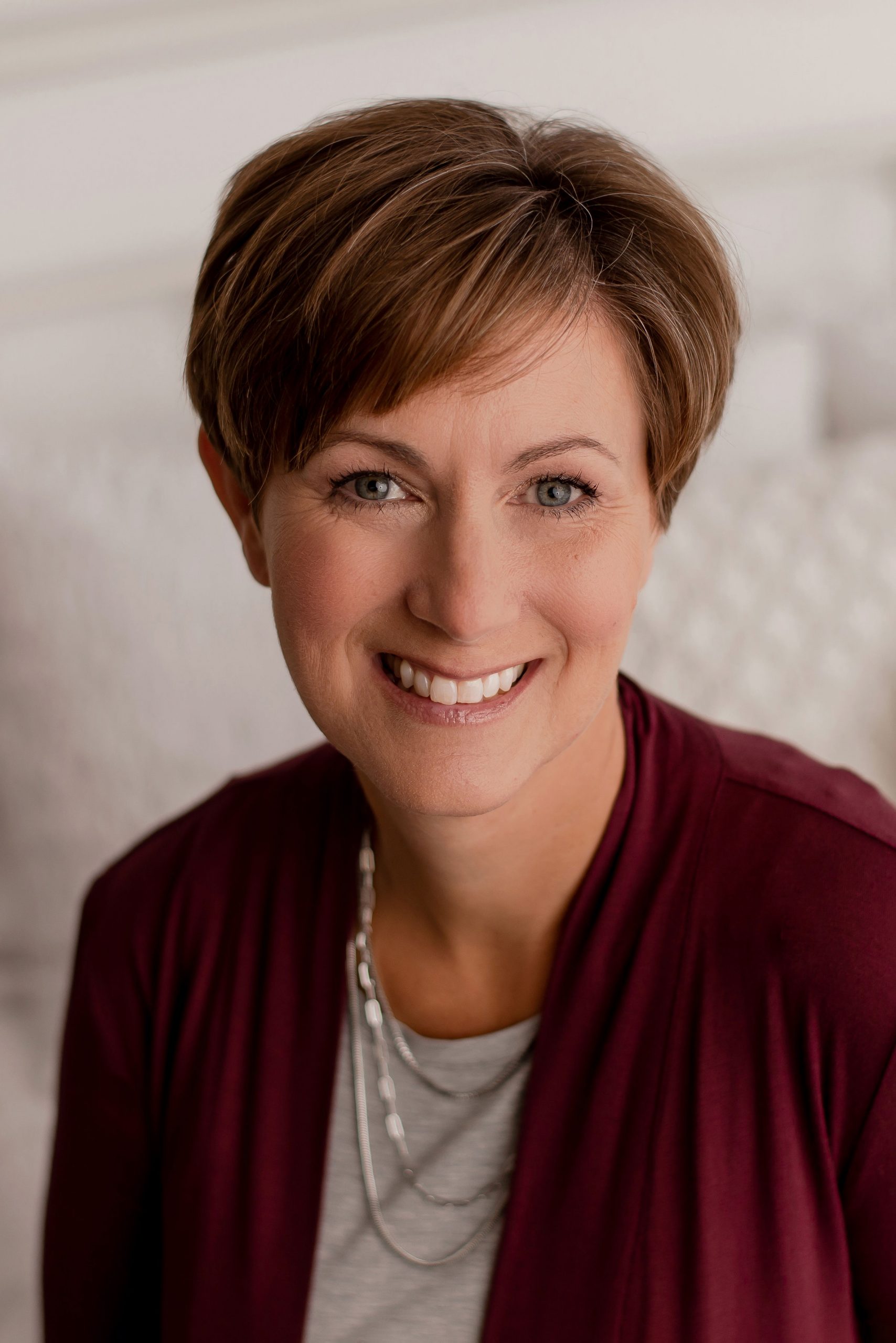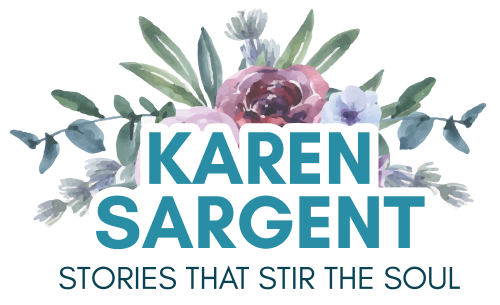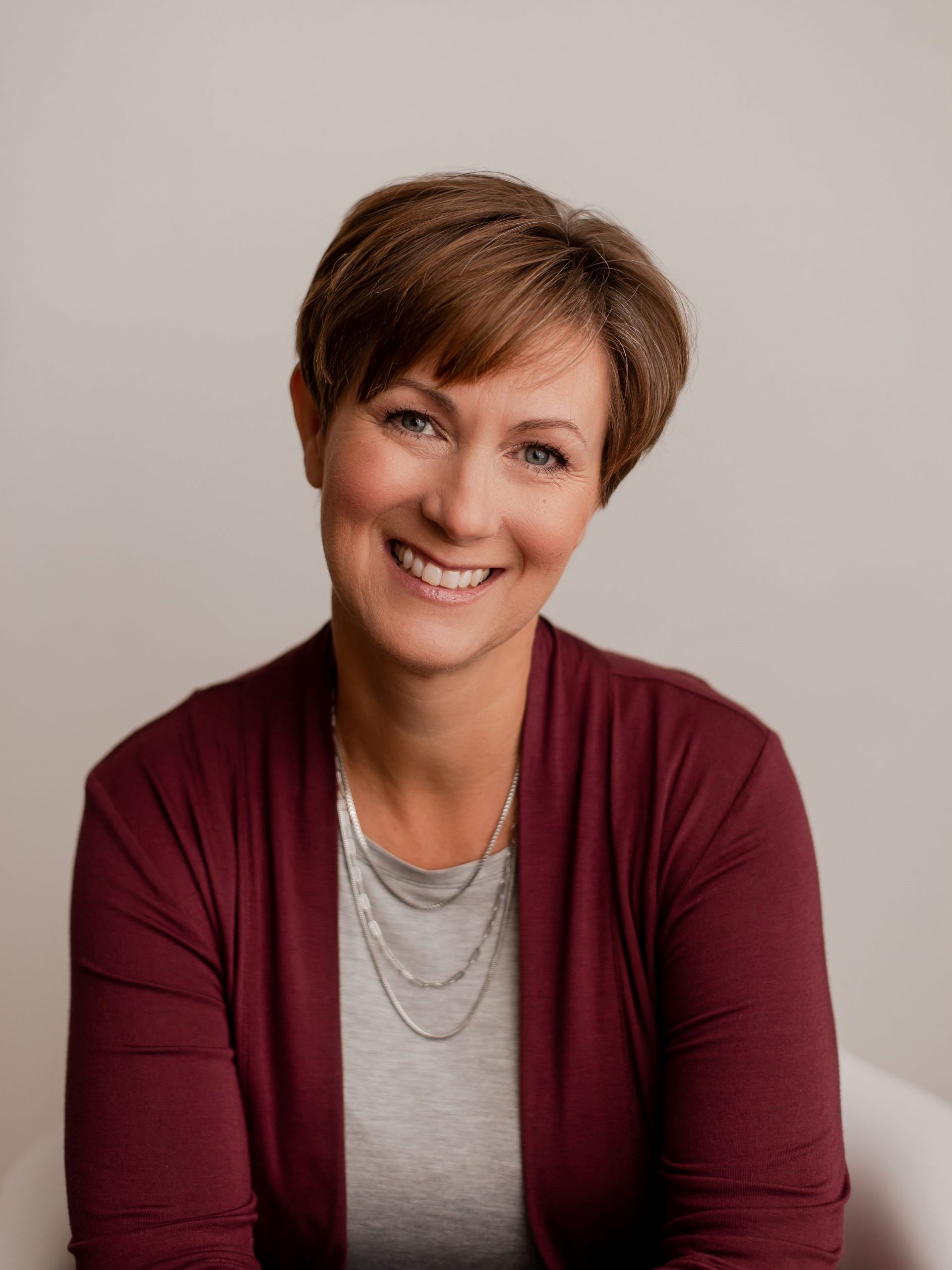Meet Karen

Author Q&A
Yes. I can remember drawing pictures with crayons to tell stories before I could write words. As a kid, I was a daydreamer and a reader. Because I loved to read and write, I decided to become an English teacher. But once I started my career, I was too busy teaching my students how to analyze literature and write essays to read and write much myself. Then I became a mom. So, I put my writing dream on hold. When that season finally arrived, I realized teaching my students had made me a better storyteller and writer, and raising my girls gave me something to write about, since all my stories somehow focus on motherhood, which was not intentional. I guess my heart led me there.
I don’t know if I will ever feel like an author. Imposter syndrome is real! But there is a moment that made my head think maybe I could claim that title, even if my heart didn’t believe it. When my first book, Waiting for Butterflies, released, a friend posted a picture on Facebook of her in Barnes & Noble with my book. I thought she took her own copy into the store and took a picture of it just for fun! I texted her, and she said three copies were on the shelf! I couldn’t believe it. I used to joke with my family that someday I’d have a book in the Barnes & Noble bargain bin. So, seeing Butterflies in the store was the first time I thought, “Huh. Maybe I really am an author.” That same Barnes & Noble hosted my first author event, which was surreal.
The ideas for my books come from big questions I have as I observe life and listen to people. Often those questions have to do with injustice, what isn’t fair, the things we struggle with or fear, our dreams and our disappointments. The idea for Waiting for Butterflies sparked when my mother-in-law passed away unexpectedly at the age of 60, leaving three granddaughters under the age of three. She was not ready to leave her family, and it seemed so unfair. As a mother, that triggered my two biggest fears—losing a child or dying before my girls were grown. Then the “big question” surfaced: What would happen if a mother were taken from her family before she was ready to go? The answer created Maggie’s character and her story.
Author Liane Moriarty says something about this that makes me smile: “Friends and family don’t believe you write fiction. They truly believe that every word you write is either autobiographical or based on them.” I’ve never created a character who is a clone of a real person. But, my experiences with people leave impressions on me that I draw from. For instance, if a character is compassionate, I might reflect on compassionate people in my life and what that might look like for my character. Or if my story includes a law enforcement officer (and they usually do), I draw upon my experience being married to a highway patrolman. However, I do enjoy naming characters after family and friends just for fun. I wonder when they read my book and see their name if they think, “Did Karen name this character after me?” Ninety-nine percent of the time there is no connection between the name and the character’s personality or plight. It’s just a fun shout-out to people I care about.
The absolute very best part of being a writer is receiving emails from readers who say my book made a difference, not simply that they liked it—although those are wonderful messages to receive, too—but that the story touched them in some meaningful way. With Butterflies, so many readers who were grieving the loss of a loved one said they felt hope after finishing the book. I’m amazed at how many people shared their own experience of seeing butterflies after the death of a mother or sister or child and believed the butterflies were a sign of comfort and peace. Those messages fill my heart and give me a reason to keep writing.
The worst part of being a writer is writing! It is hard work! I’m not sure who said this, but I often repeat this quote: Nobody likes writing. Everybody likes to have written. I enjoy dreaming and thinking about a chapter. And I love when the chapter is finished. But that part between—it’s self-inflicted torture! And there a lot of chapters in a book! When asked during a webinar what she thinks about when she is writing, my friend Jessica Strawser said, “I think, why do I keep doing this to myself?” This is why messages from readers are so valuable to authors. It makes us think all that hard work might actually be worth it. (So, thank you!)
I wish I had one. I really do. I’d love to say I write every day from 6 AM to noon. But sometimes I don’t see my laptop until noon or after. I am so undisciplined (which will shock my former students who read this, and who might be calling me a hypocrite right now. Sorry, kiddos!). I do prefer to write in the morning because my brain works best then, fueled by coffee with cream. My goal is to write 1,000 words a day, but I rarely meet that because I am a s-l-o-w writer. I can’t write “sloppy copy” and move on knowing I will have to come back and revise. I try to make each scene the best I can the first time—not a method I recommend. I’m also terrible with self-imposed deadlines. I can’t tell myself, “You better write 5,000 words by Friday or else!” Or else what? I don’t know. But if an editor gives me a deadline? I wake up writing and go to bed writing and may or may not shower or eat until I beat that deadline.
I have received so much great advice from writing coaches, other authors, books, articles, etc. But here’s one I think about a lot that I read in an interview of one of my favorite authors, Celeste Ng: One of the rules of engineering is first, make it functional. Then make it elegant. Obviously, I don’t follow this advice because I try to perfect my writing as I go. But I want to follow it. It makes sense to me. I just have to find the magic switch in my brain and flip it.
Podcasts
Contributing Author
Mornings with Jesus (2023)
Inspiration from the Garden (2022)
Strength & Grace (2022)
Pray a Word a Day (2021)
God’s Comforting Ways (2020)
In the Arms of Angels (2020)
Kindness Matters (2022)
Miracles & Divine Intervention (2021)
Making Me Time (2021)
The Forgiveness Fix (2019)
Faith-Pump: a 40-Day Devotional (Bold Vision Books, 2022)
First for Women Magazine (April 2022)
Media
Download High-Resolution Photos
Author Bio
Karen Sargent writes emotionally charged women’s fiction that asks big questions, induces tears and laughter, and leaves the reader with something to ponder. Her debut novel, Waiting for Butterflies, is an IAN Book of the Year and earned a Foreword Reviews Gold Award.
Between working on her upcoming novels, Karen writes devotions for numerous Guideposts magazines and books. She is also a frequent Chicken Soup for the Soul contributor.
A retired high school English teacher and adjunct college instructor, Karen will always be a teacher at heart. She gets her fix by presenting at writing guilds, conferences, and community classes. She also enjoys leading book launches for publishers and authors. She serves as a writing contest judge for the Women Fiction Writers Association (WFWA) and American Christian Fiction Writers (ACFW). She and her husband reside in their empty nest in the beautiful Missouri Ozarks. Visit her at KarenSargent.com.


